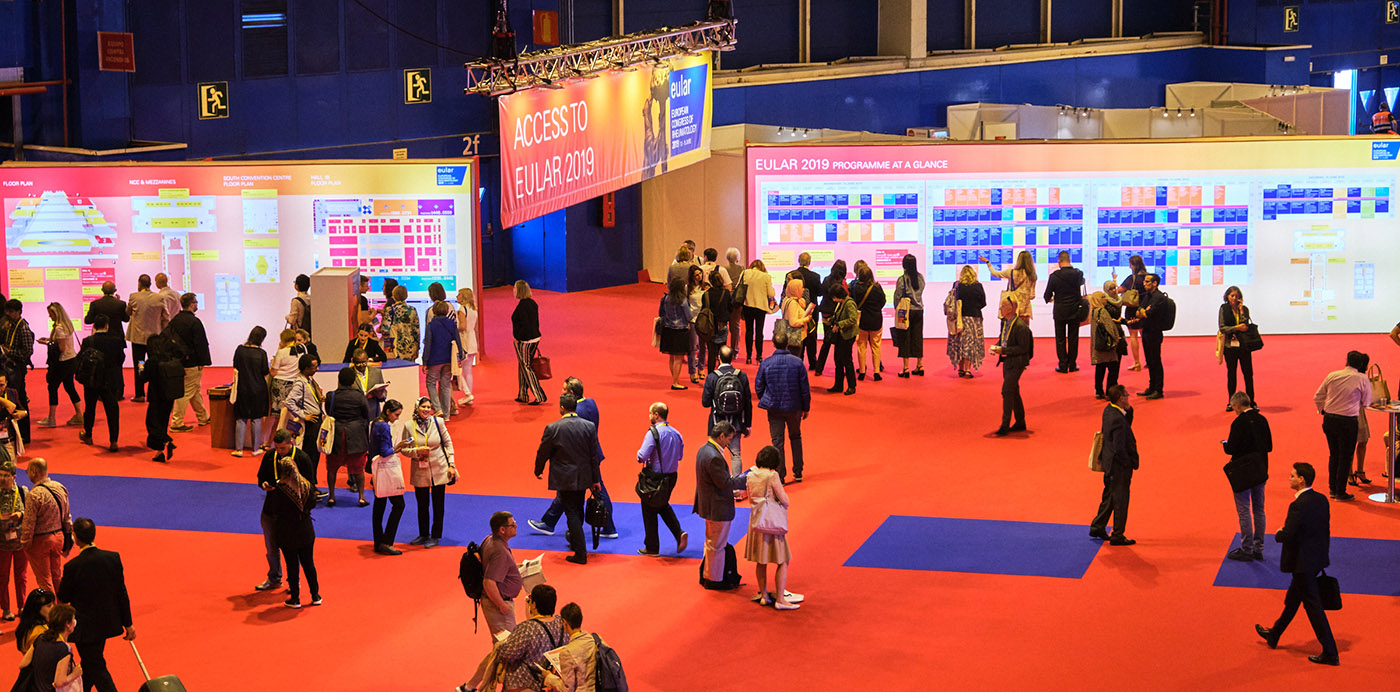The study results we've all been waiting for – part 2 of the GiACTA trial – have been announced at EULAR this week, but there are still a few “unanswered questions”, an Australian rheumatologist says
The study results we’ve all been waiting for – part 2 of the GiACTA trial – have been announced at EULAR, but there were still a few “unanswered questions”, an Australian rheumatologist says.
Part 1 of the GiACTA trial, reported in NEJM in 2017, examined the effect of a one-year course of tocilizumab in around 250 patients with giant cell arteritis.
The trial found that a weekly or fortnightly dose of tocilizumab given for 52 weeks could put over half of GCA patients into glucocorticoid-free remission.
At the one-year mark, patients stopped the biologic therapy.
The trial results unveiled by Harvard University rheumatologist Professor John Stone at EULAR last week showed what happened during the two-year extension of the GiACTA trial.
Professor Stone reported that nearly half of these patients stayed in steroid-free remission for the second part of the trial.
Over 50% of patients in the tocilizumab group relapsed in the second and third years of the GiACTA trial.
But patients who had a flare were treated with another course of tocilizumab, which put them back into clinical remission.
Finding a replacement for steroids has long been a goal in GCA research because steroids have devastating side effects in older women, raising the risk of osteoporosis and fractures.
The study was particularly relevant for Australian rheumatologists as tocilizumab for GCA was recently pushed along to the next stage of the PBS approval process by PBAC and could soon be affordable for patients.
However, the GiACTA trial left rheumatologists with some “unanswered questions”, said Professor Catherine Hill, a rheumatologist based in Adelaide and the vice-president of the Australian Rheumatology Association.
The GiACTA trial had a 20% drop-out rate, with only 197 patients completing the three years.
“And even though it was a lot of patients in the beginning, when you start dividing it into four groups … it starts to get quite small and it starts to become a bit more difficult to interpret the results,” Professor Hill told Rheumatology Republic.
“The other thing from the first part of the trial was it seemed that the patients who were recently diagnosed had slightly different results from those patients who relapsed. The patients who got into the trial on a relapse didn’t seem to respond to the lower dose of tocilizumab.
“That wasn’t really different to placebo. In the results that Professor Stone showed today, he didn’t sub-divide them by whether they had entered GiACTAas newly-diagnosed or relapsed. So, I think that’s another query.”
The GiACTA trial also didn’t provide guidance on whether tocilizumab should be tapered or withdrawn after 12 months in patients with GCA, said Professor Hill.
“[This] is quite attractive to rheumatologists because we would think about weaning the steroids as quick as possible and then perhaps weaning tocilizumab,” she said.
Listen to the full interview here:


